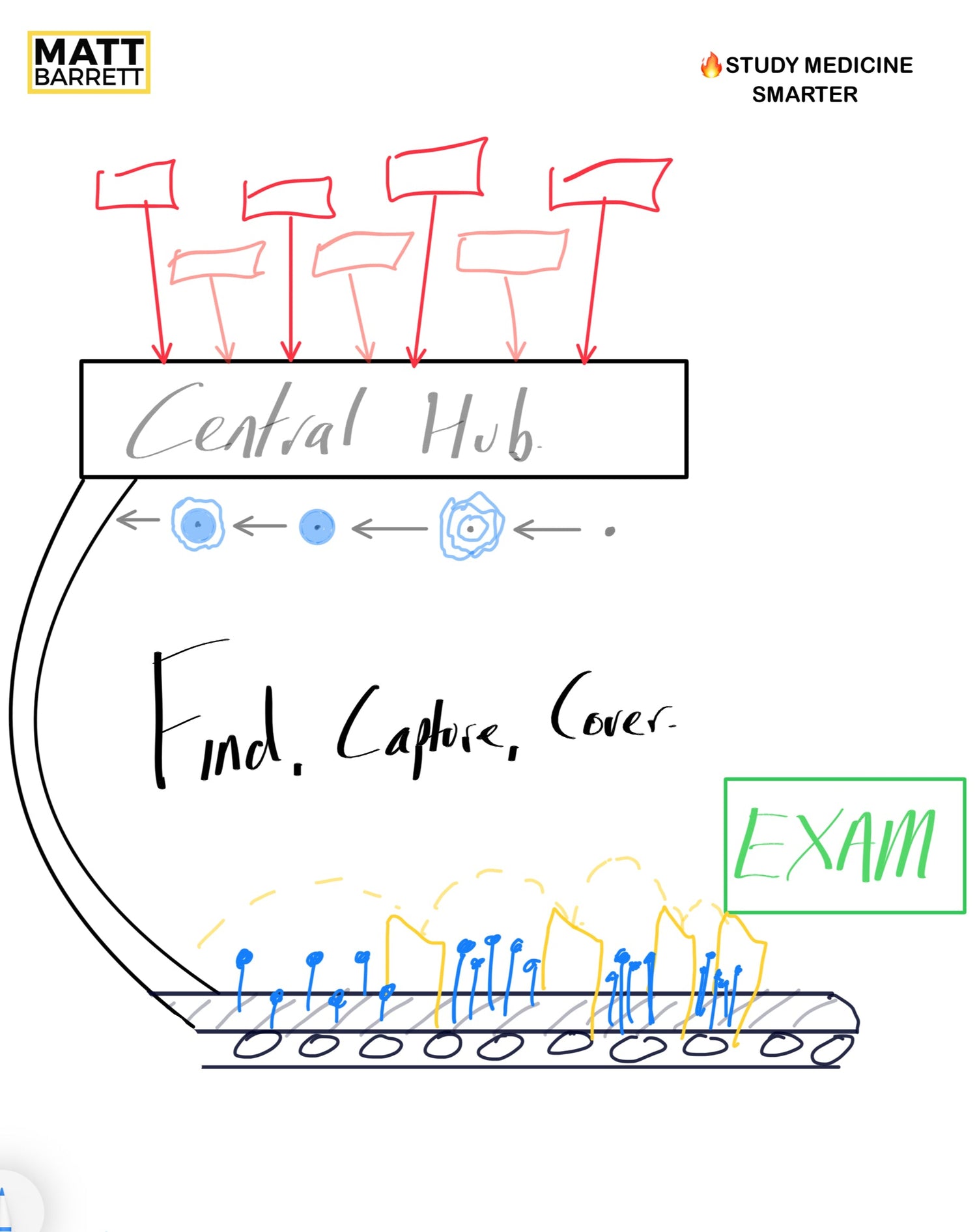


I know this might sound controversial, but hear me out. Audits will keep you super busy. But in the long run? They're not so effective at helping you stand out.
And when you’re trying to build a competitive portfolio as a medical student around your studies/commitments, that’s a problem.
In this post, I’ll explain why audits are often low-leverage, when I'd suggest doing them instead, and when doing an audits at medical school would be a good idea!
So we're on the same page...
✅ What is an audit?
So First — What Is an Audit?
An audit is kind of like a quality improvement project.
You collect data on how a hospital or system is doing something (like giving VTE prophylaxis), spot a gap, and suggest a change — maybe a teaching session or updated guideline. Then, ideally, you come back later and see if things improved.
✅ Whats the difference between a first and second loop?
The first round, or "opening the loop", is when you collect data to look into a department's specific area of interest. You'll either need to have direction by a senior to highlight what they'd find clinically useful to look into, or you may have spotted something from your time on placement (much less likely!).
But closing the loop requires that you come back later, to re-audit how well your intervention has worked.
You collect the same data, hoping to show that youve made an impact with your intervention.
Summary:
Initial audit 👉 analyse data 👉 give recommendation 👉 reaudit 👉 re-analyse data to see any improvement.
My issue with audits.
They take up a lot of time, for (usually) poor long term gains.
Let’s be honest — if you’re not embedded in the hospital system yet, audits are a pain to start.
You need to:
- Learn unfamiliar hospital systems
- Navigate multiple logins, databases, and forms
- Chase teams you’re not officially part of
- And somehow convince someone to help you interpret and implement changes
Even once you do the work, the output is often:
- Not substantial enough to lead into a paper
- Not make it much further than a local meeting
- Or... your name tacked on the end of someone else’s slide deck if you're working with others
And while some audits do lead to more — many don’t.

Looking to efficiently build portfolio points?
I’ve been coaching med students and junior doctors for years on how to build standout portfolios, get into competitive specialties, and make strategic career moves. I did a lot alongside medicine: papers, conferences, leadership, entrepreneurship — and I now help others do the same.
🤔So when should you prioritise audits?
Once you’re actually working in the system as a doctor — audits become way easier.
The datas at your fingertips, the teams know you, and you’re in a position to implement change directly. So… wouldn’t it make more sense to wait until then?
You're likely to bash them out quicker.
When Do Audits Actually Make Sense?
To build on the above, here’s when I think audits are worth doing:
✅ If your chosen specialty favours them heavily with CV points
✅ If the project is quick, well-defined, and clearly scoped
✅ If a senior is actively guiding it and pushing it forward
✅ If there’s a tangible output at the end (authorship, mentorship, presentation)
In those cases — go for it. But otherwise? I’d be cautious.
If You Are Doing One in Med School — Be Strategic
Here’s your checklist:
- Be clear on your intended purpose, what are you trying to get from it ("experience" shouldn't be the reason)
- Make sure whoever you're wanting to network with is actually involved/cares
- Avoid being buried by others - how many residents/registrars are involved who will get priority above you for any opportunities it generates?
❌BEWARE of being the "collaborator"... a super low yield position.
If you’re just collecting numbers for someone else’s project — and you’re not even guaranteed it will help be recognised as valuable in the future — it’s probably not worth your time.
🔓Unlock the MedEd Vault
Sign up to my newsletter for new releases, discounts, and the MedEd Vault:
The internets best free medical education resources that you probably didn't know existed.
🤨So what should you do instead?
Focus on the high-leverage stuff.
Rather than diving into audits, I’d strongly suggest going for research papers — ideally where you can be first or second author.
Why? Because it often takes a similar amount of time without the hassle of learning complex hospital systems — and the payoff tends to last longer on your CV.
Ultimately, it all comes down to reverse-engineering the scoring systems used in current job prospectuses.
The goal isn’t to do more — it’s to do a small number of high-impact things that deliver the biggest gain.
As I said earlier, audits can lead to opportunities. But in my experience, a well-executed research paper is far more likely to open doors — especially if it’s been set up properly from the start.
The takeaway?
Your time is limited.
And if you want to build a strong, efficient portfolio — start by prioritising the highest-return activities.
If you want help figuring out what that looks like for you, feel free to drop me a message — always happy to point people in the right direction.
TL;DR: audits have a relatively poor ROI.
ROI = return on investment of your time and effort.
